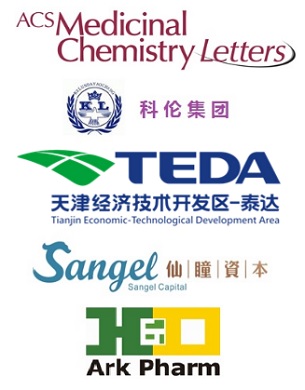国际新闻精选周二(2017年1月31日)
Calithera and Incyte Agree on $53M Up-Front Deal for Clinical-Stage Arginase Inhibitor
Incyte and Calithera Biosciences inked a global collaboration and licensing deal to develop and commercialize the latter’s early clinical-stage small-molecule arginase inhibitor CB-1158. Incyte will pay Calithera $45 million upfront and will make an $8 million equity investment in the company, in return for global rights to CB-1158 for applications in hematology and oncology. Calithera retains certain rights covering research, development, and commercialization of arginase inhibitors for other orphan indications.【阅读全文】
Benitec initiates development work on head and neck cancer programs after executing Collaboration Agreement with Nant Capital
Benitec Biopharma Limited (ASX: BLT; NASDAQ: BNTC; NASDAQ: BNTCW) is pleased to announce that it has initiated work on two new oncology pipeline programs after executing a Research Collaboration Agreement with Nant Capital LLC (Nant). This transaction represents a further step in establishing a strategic alliance with Nant around the development and funding of the head and neck cancer squamous cell carcinoma (HNSCC) programs.
Greg West, CEO said, "We have hit the ground running in launching into the development of these two oncology programs. The closing of this transaction solidifies the relationship with a well-respected, strategic investor who has a high regard for Benitec's scientific platform and expertise. The clinical stage asset acquired by Benitec, now termed BB-401, performed well in early stage clinical testing and we look forward to progressing it into mid stage clinical trials. 【阅读全文】
Bispecific Antibodies Reemerge T-Cell Redirection with bsAbs: As Risky CAR-T Cell Therapy?
Some scientists have suggested that bi- and multispecific antibody (bsAb) technology “will provide the next generation of targeted biologics for cancer therapy.” This optimistic assessment was echoed in a 2016 InsightPharma report saying that progress in bsAb research and the regulatory success of two bispecific molecules has led to an “explosion” of T-cell redirecting bsAbs. But many of the same side effects that plague chimeric antigen receptor (CAR) T-cell antibody therapy may afflict these next-generation antibody therapeutics. Mostly, these relate directly to the same immune system-invoking mechanisms that make CAR T-cell therapy effective in intractable blood tumors.【阅读全文】
Autoimmune disease vies with cancer to dominate the class of 2017
Given the stunning multiple sclerosis data seen with Roche’s Ocrevus it could come as a surprise that this agent is not the biggest expected launch of 2017. That honour belongs to Sanofi/Regeneron’s dermatitis hopeful Dupixent, which thus also edges out Astrazeneca’s first shot at checkpoint blockade, durvalumab.
Among non-biologicals, meanwhile, the drug to watch is Novo Nordisk’s once-weekly semaglutide, EvaluatePharma figures suggest (see tables below). The data, compiled using sellside consensus 2022 sales forecasts, show that alongside cancer therapies it is drugs against autoimmune diseases that will dominate this year’s big launches.【阅读全文】
The top 10 drug launches of 2017
After an unusually slow year for new drug approvals—the FDA greenlighted just 22 meds in 2016—it remains to be seen whether drugmakers can do much better in 2017. One thing’s for sure, though: No matter what total the industry tallies up this year, the crop will bring some would-be blockbusters and market disrupters.
At the top of the list, according to EP Vantage’s 2017 preview, which ranks the year’s rollouts by 2022 sales, is Ocrevus (ocrelizumab), the Roche multiple sclerosis drug that’s promising to shake things up in more ways than one. In clinical trials, the candidate bested Merck KGaA's standard therapy Rebif, and it’s also gone where no other MS drug has gone before, posting positive data in patients with the primary progressive form of the disease. Those data will put the heat on other meds—and invite payers to pile pressure onto the segment, too.【阅读全文】
Eight medicines leap towards EU approval
Eight medicines - including two biosimilars - have taken a giant step towards being approved for the European market having won favour with the European Medicines Agency's Committee for Medicinal Products for Human Use (CHMP).
Approval of Pfizer's oral Janus kinase (JAK) inhibitor Xeljanz (tofacitinib) has been recommended as a treatment for rheumatoid arthritis (RA).【阅读全文】
Novartis Signals Growing Ambitions for CAR-T Cancer Treatments
Novartis AG is pushing ahead with one of its most ambitious cancer therapies, a treatment that the Swiss drugmaker says has blockbuster potential as it extends that technology to a wider pool of tumour-ridden patients.
Europe’s second-biggest drugmaker is planning to test its CAR-T treatments—which involve extracting immune cells and genetically engineering them to hunt and kill cancer cells before returning them into the patient’s body—on lethal cancers of the brain, pancreas, colon, ovary and lung. The company has also doubled its investment in manufacturing for these treatments.【阅读全文】
Microcap biotech Ocera craters on a PhIIb failure for hepatic encephalopathy
Ocera $OCRX has joined the growing lineup of microcap biotechs to experience the crushing effect of a clinical setback. The biotech announced that its lead, and only, drug — ornithine phenylacetate (OCR-002) — failed a Phase IIb trial among hospitalized patients suffering from hepatic encephalopathy.
There was a 17-hour reduction in time to an improvement in HE symptoms, compared to the placebo arm. But that was not statistically significant and underwhelmed the analysts following this company.【阅读全文】
Hormone may protect ovaries from chemo damage
Chemotherapy often causes infertility in young women because the drugs are designed to damage all rapidly growing cells, including those in ovarian follicles. Scientists have good evidence that chemo also speeds up the development of “primordial” follicles—egg precursor cells—putting women at risk of losing their entire reserve of follicles in months rather than years.【阅读全文】
Phase 3 hit tees FibroGen, AstraZeneca up for anemia filing
FibroGen has posted positive phase 3 data on its AstraZeneca-partnered anemia drug. Both trials in the Chinese phase 3 program met their primary endpoints, moving FibroGen closer to filing for approval of a drug that enjoys fast-track status in the country.
The first of the phase 3 trials enrolled 151 anemia patients and randomized them to receive either FibroGen’s oral HIF-PH inhibitor roxadustat or a placebo. Hemoglobin levels in the treatment arm increased by 1.9 g/dL over the course of the eight-week trial.【阅读全文】
美中药源原创文章,转载注明出处并添加超链接,商业用途需经书面授权。★更多深度解析访问《美中药源》~
★ 请关注《美中药源》微信公众号 ★



















 微信号:美中药源
微信号:美中药源